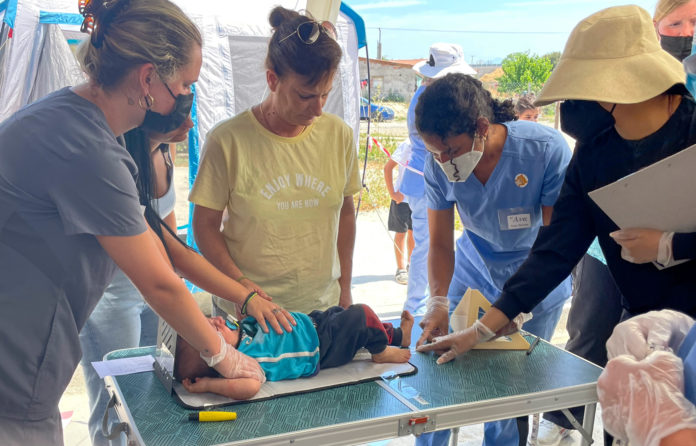
A stigmatized and impoverished population in Greece received basic health care and nutrition guidance from a Mercer On Mission team this summer.
Sixteen Mercer University students participated in the ongoing service-learning project to assist the Roma people in partnership with Romani Hope, a local nonprofit that promotes awareness and understanding of Romani culture. Faculty Dr. Scott Nash, Dr. Paul Lewis and Marsha Lewis led the Mercer On Mission program.
“As an EU (European Union) country, all citizens in Greece are supposed to have access to the national health care system,” said Dr. Paul Lewis, professor of religion in the College of Liberal Arts and Sciences. “But the Roma people don’t always access it for a variety of reasons.
“Sometimes it’s finding a health care provider that will want to work with the Roma. Sometimes it’s just difficulties with transportation or even paying what little costs are sometimes involved in the health care system.”
Mercer On Mission teams’ past work in Greece identified health needs among the Roma community. In 2019, Mercer held its first health clinics in Greece using telemedicine. This summer, Dr. Patrick Roche, associate professor in the Department of Family Medicine at the School of Medicine, joined the team to provide care from an on-site physician.
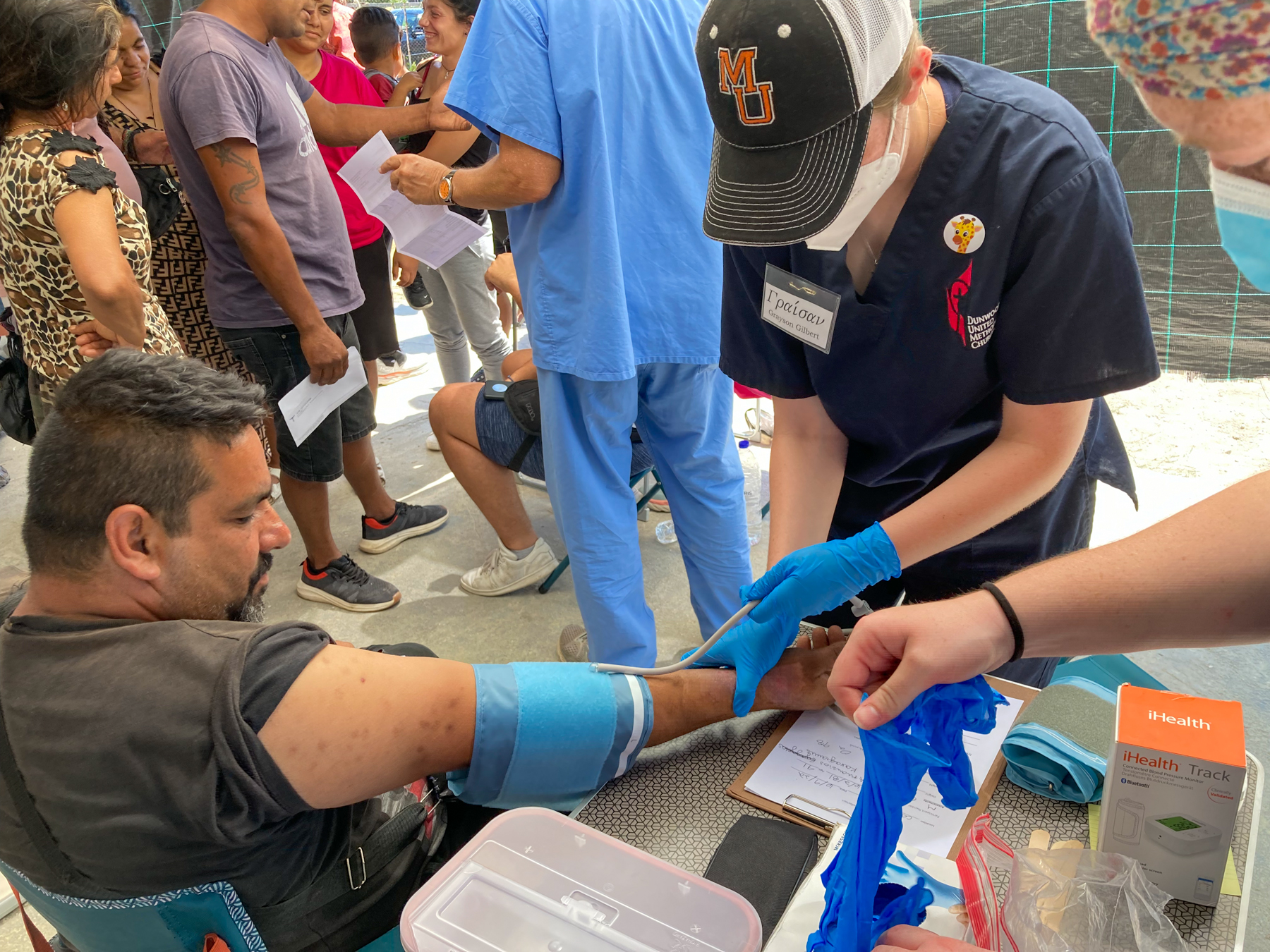
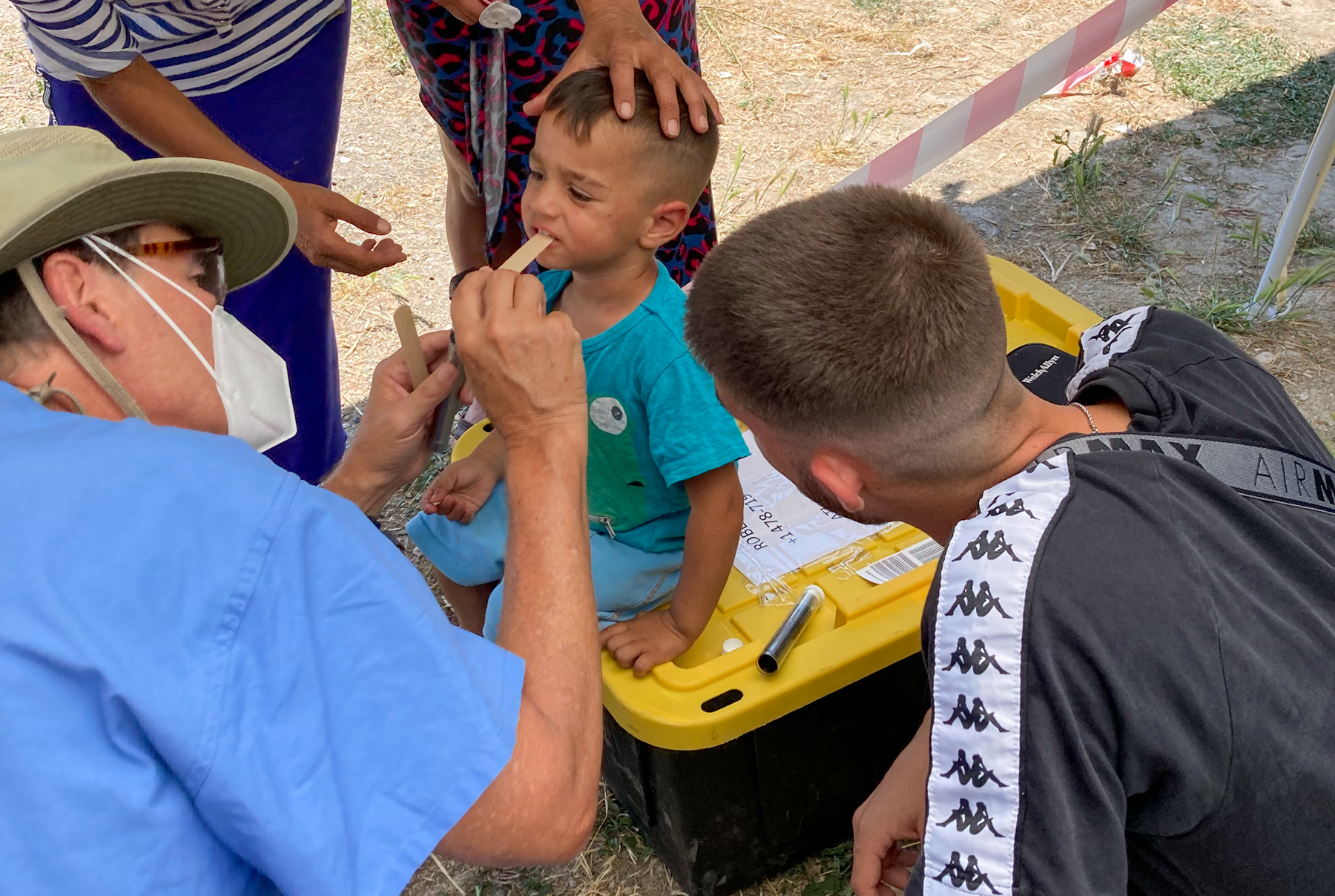

Based in Ancient Corinth, students set up health clinics in three nearby Roma communities. Students primarily checked vital signs and screened children for nutrition deficiencies. Dr. Roche saw people with more serious issues and referred them to local medical centers as needed.
“Some of the problems were what are for us typical, chronic problems — diabetes, high blood pressure, those sorts of things,” Dr. Paul Lewis said. “With the children … there were some indications, especially in the poorer of the camps that we visited, of malnutrition and mothers not getting the kind of prenatal or postnatal education they need.”
As part of the trip, each student took two of three offered courses: archaeology and religion, ethics of global development, and nutrition and early childhood development.
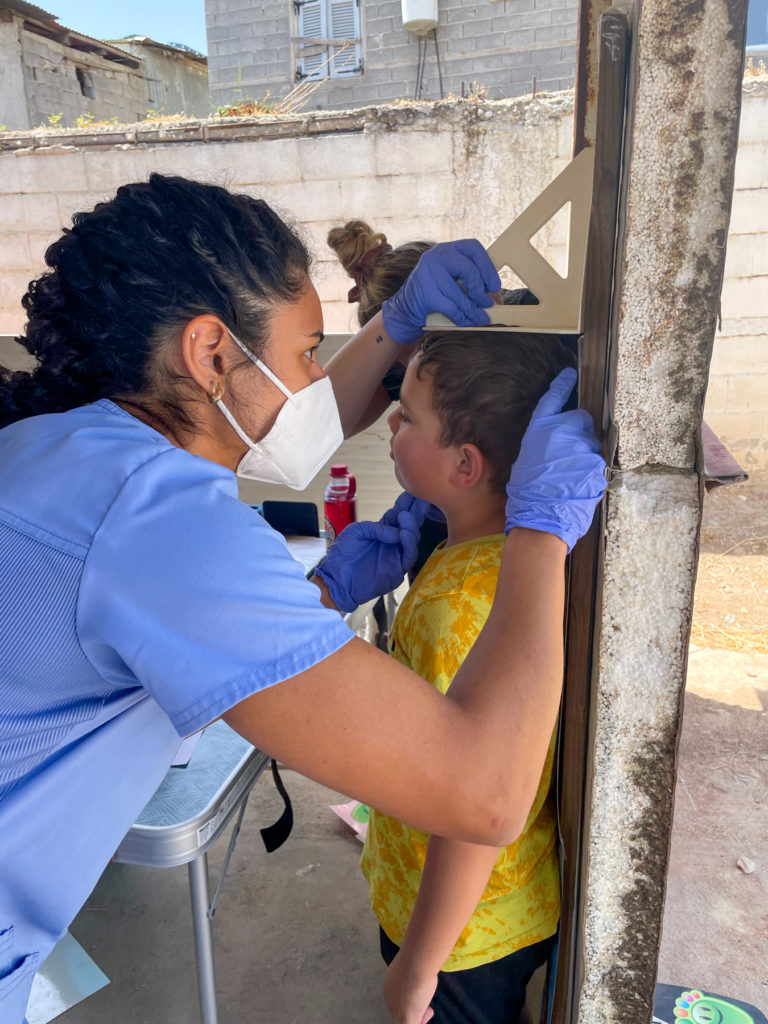
Students in the nutrition course focused on screening for malnutrition in children ages 1 to 5. They did this by measuring height and weight and utilizing a mid-arm circumference tape, which is used by the World Health Organization to assess malnutrition, said Marsha Lewis, adjunct instructor of nutrition.
“What we did find was stunting, which means they’re just not growing,” she said. “It’s not the gross malnutrition you might see when there’s no food available. This is just when there is food but maybe not enough. …
“Some of the parents were doing what we see pretty much all over the world, which is diluting formula. Not because formula is not available in Greece, but it’s two things. Probably one, cost. But number two, in the case of a couple of people we spoke to, they just didn’t know. They hadn’t been well educated about it.”
Through a translator, the Mercer team showed parents how to properly mix the formula and ensure their babies were getting enough.
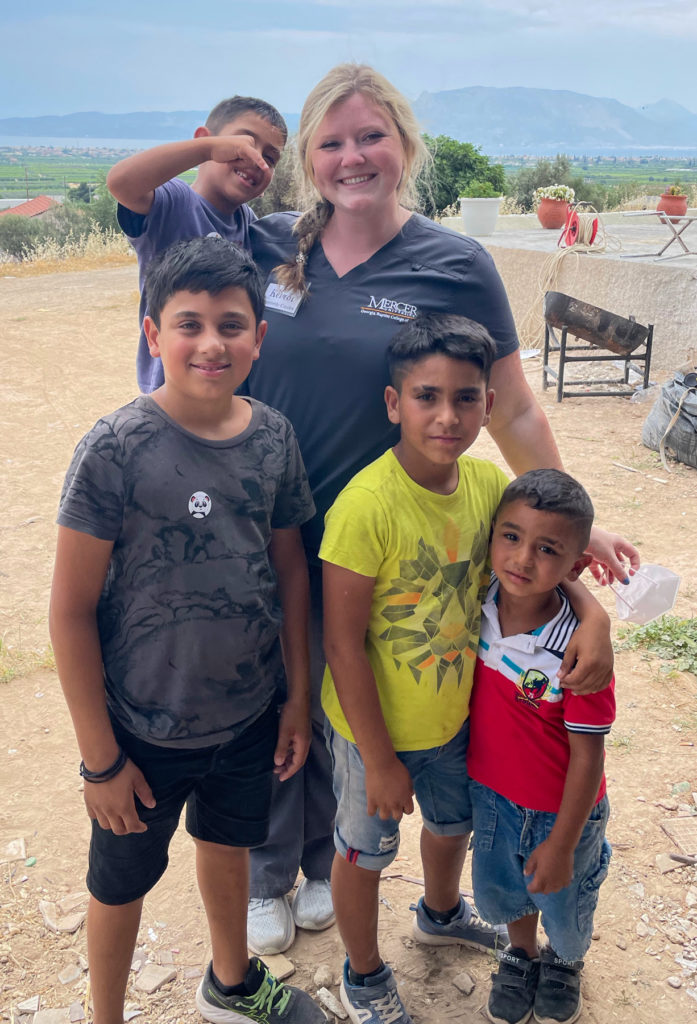
The experience made an impression on senior Kennedy Cauley, who is majoring in nursing.
“Seeing that mother’s face when we figured out why her baby was malnourished, she was so happy and hugged us,” Cauley said. “I think that she was just so happy that we were taking care of her, being nice to her and treating her with that respect.
“That’s why I’m going into health care — because of how people react to you helping them and how thankful everybody gets. I love the patient-nurse bond, and I feel like that was something we were able to experience in Greece.”
The students came up with their own ways to help, as well. When Dr. Roche noted that a lot of children had dental cavities, the students bought toothpaste and set up a station where they showed the kids how to brush their teeth, Marsha Lewis said.
“We had an exceptionally good group of students. They were supportive of each other and got along, and everybody came with the goal of working with the Roma,” she said.
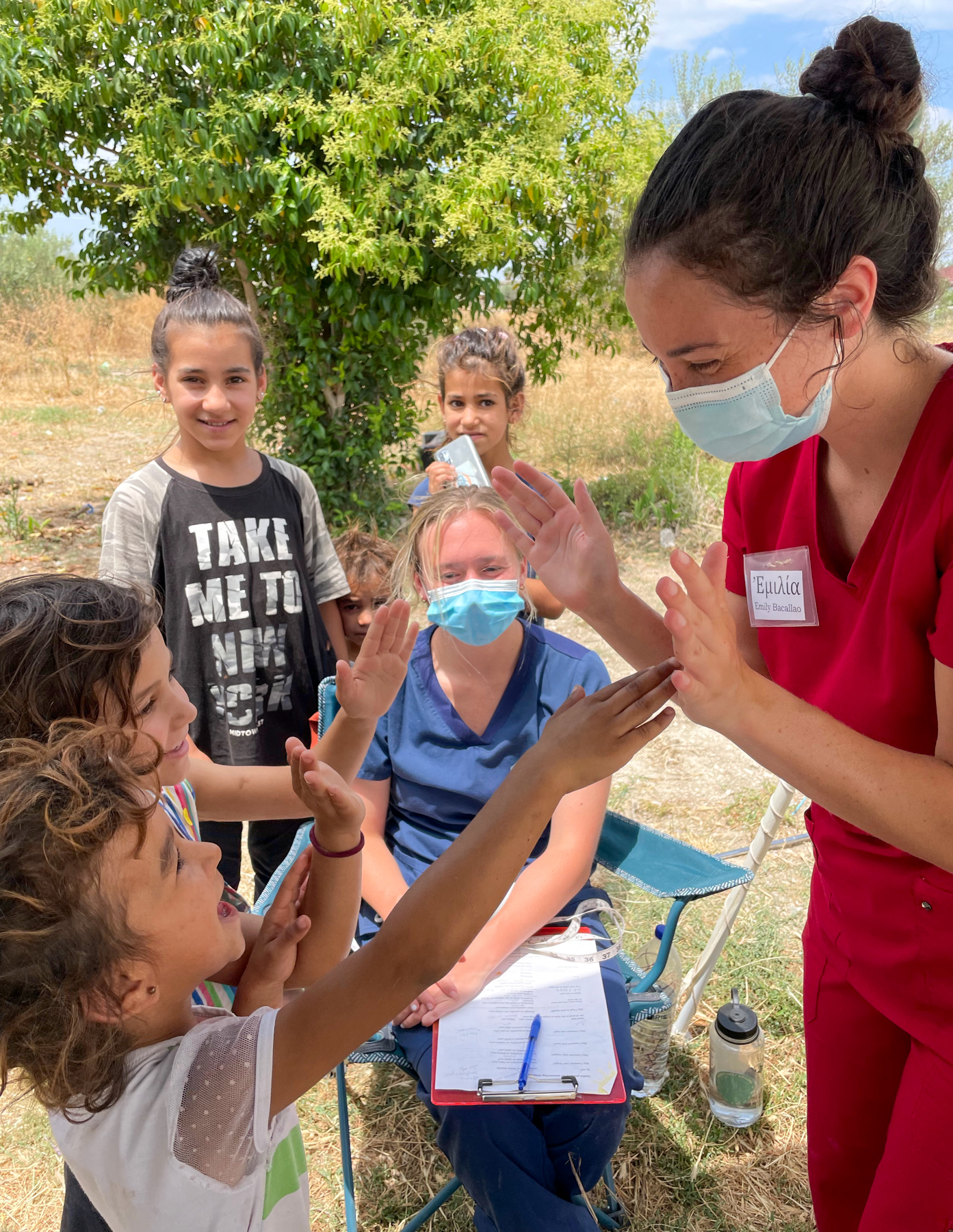
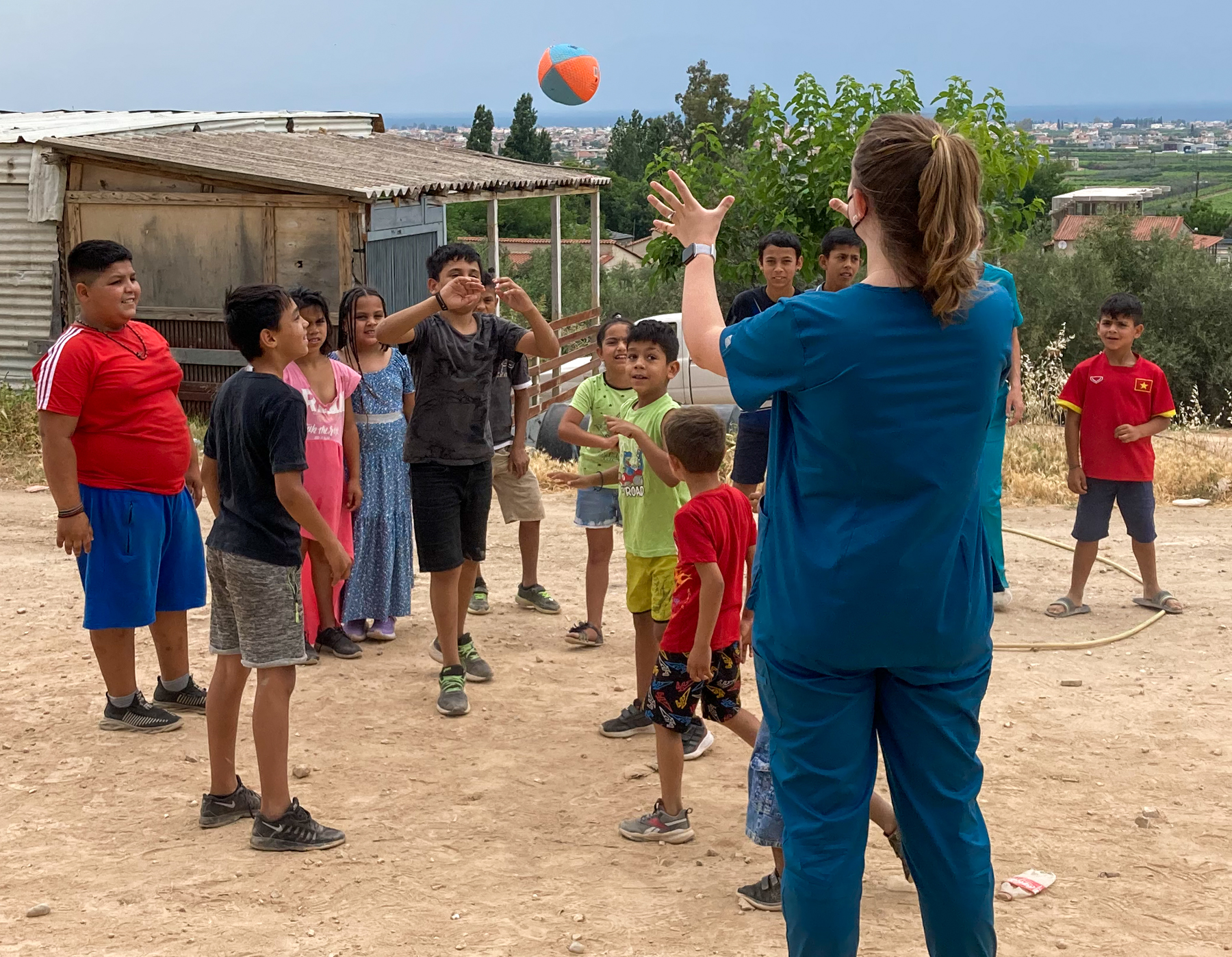
In addition to the health clinics, students were introduced to Greek history and engaged in archeological experiences. Students in the archaeology and religion class prepared presentations on sites that the group visited, including Ancient Corinth, Nemea, Mycenae, Epidaurus and Athens.
“We related primarily to, in the religious aspect, the god of healing in ancient Greece, who was Asclepius, and we try to connect that in some thematic way to the healing that we’re trying to do,” said Dr. Nash, Columbus Roberts Professor of New Testament in the College of Liberal Arts and Sciences. “The on-site visits are pretty intense. The students get behind-the-scenes looks that in a few cases tourists wouldn’t have.”
Junior Caroline Zueck, who is majoring in biology, researched the site she presented before traveling to Greece.
“I was able to give a tour to the group of the Athenian Acropolis, which is where the Parthenon is, several temples and sanctuaries. It’s at the top of this mountain, and you can see the whole city of Athens from up there,” she said. “It was just really cool to be able to give that site presentation.”
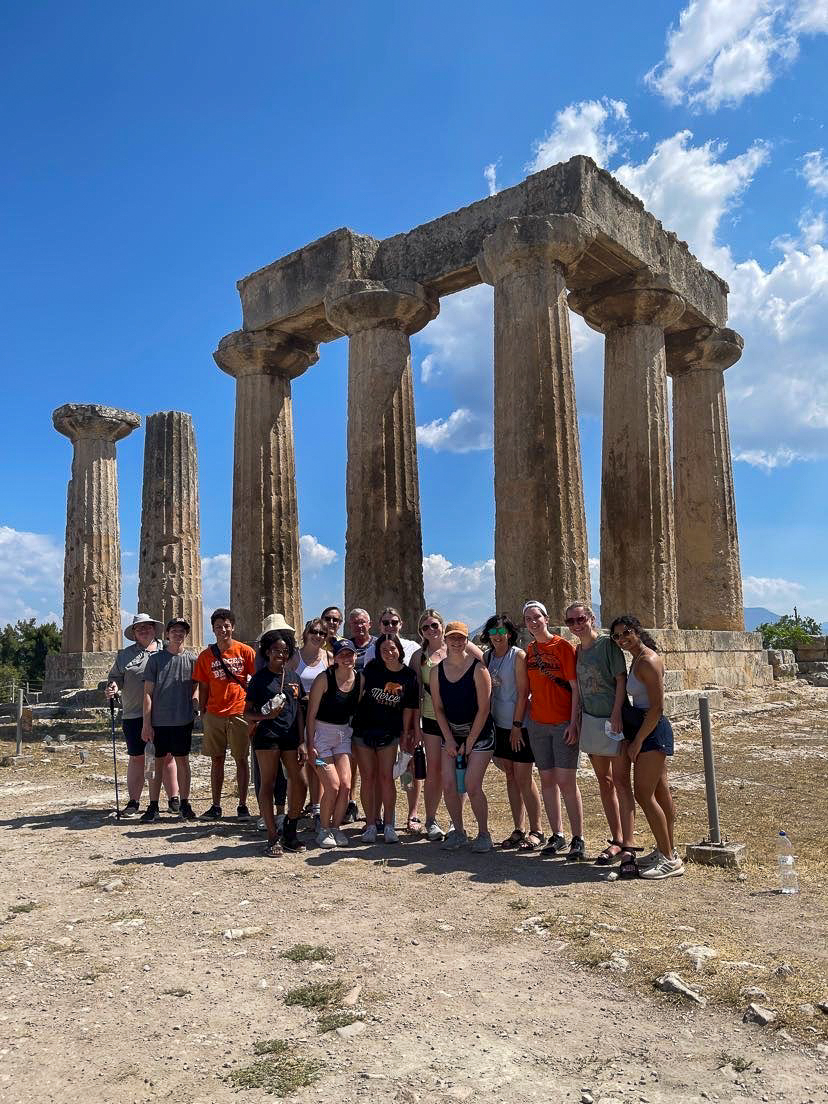
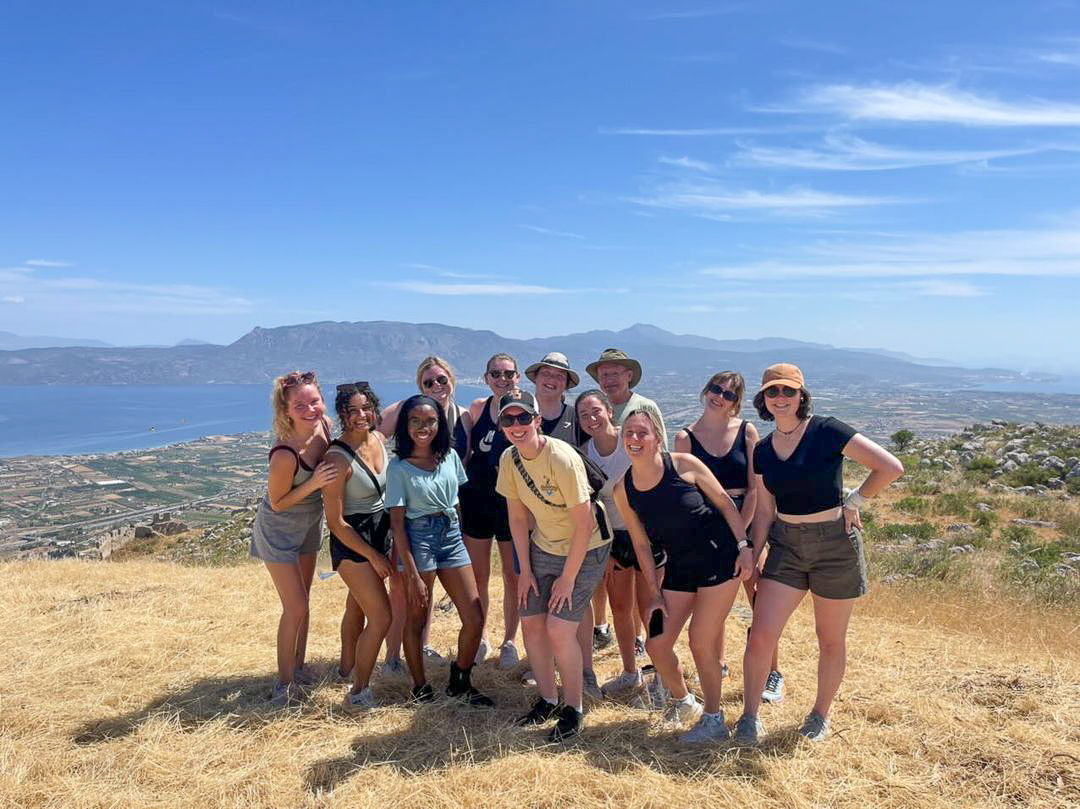
Senior Ben Browne, who is majoring in mathematics, gave his presentation on Mycenae, a major center of Mycenaean culture.
“I’ve always loved Greek history and mythology, and to see a lot of the places that I’ve learned about in person was really cool,” he said.
In Dr. Paul Lewis’ ethics of global development class, students studied best practices for global development and wrote papers providing next steps for Romani Hope. Some past students’ ideas have been put into practice, Dr. Lewis said.
Students and faculty stayed in villas in Ancient Corinth.
“It was awesome, and it was right by the Acrocorinth, so you could just walk right over to the mountain,” Zueck said.
While service-learning was the focus of the Mercer On Mission trip, students valued the entire experience — from the food they ate to the bonds they made with faculty and peers.
“The friendships that I made with the faculty and the students were just incredible to me,” Cauley said.








